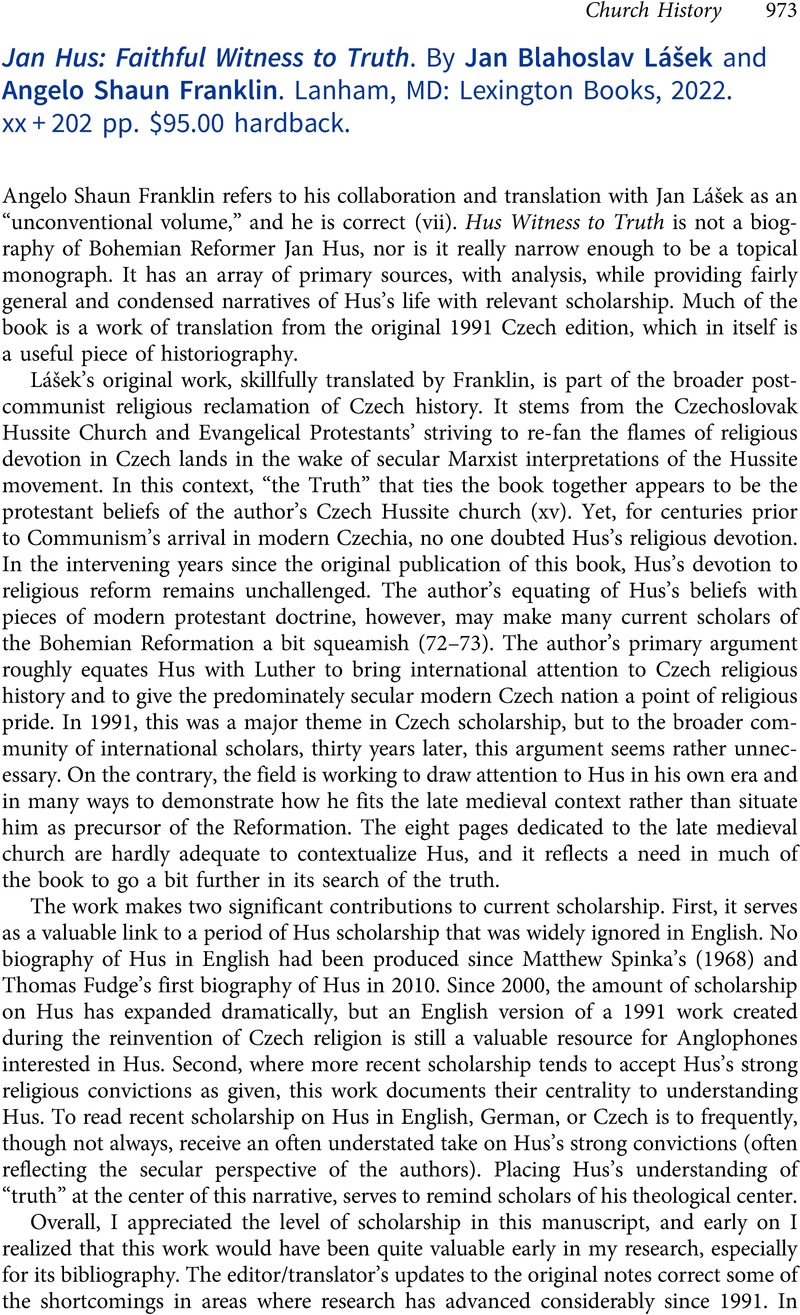No CrossRef data available.
Article contents
Jan Hus: Faithful Witness to Truth. By Jan Blahoslav Lášek and Angelo Shaun Franklin. Lanham, MD: Lexington Books, 2022. xx + 202 pp. $95.00 hardback.
Review products
Jan Hus: Faithful Witness to Truth. By Jan Blahoslav Lášek and Angelo Shaun Franklin. Lanham, MD: Lexington Books, 2022. xx + 202 pp. $95.00 hardback.
Published online by Cambridge University Press: 19 March 2024
Abstract
An abstract is not available for this content so a preview has been provided. Please use the Get access link above for information on how to access this content.

- Type
- Book Reviews and Notes
- Information
- Copyright
- Copyright © The Author(s), 2024. Published by Cambridge University Press on behalf of American Society of Church History


